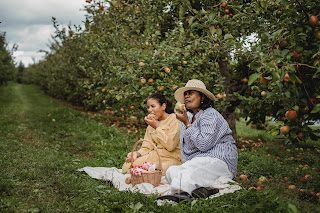Mindfulness On The Road
It is often easier to keep a steady mindfulness practice when we are in our familiar settings like home or work. But what about while traveling?
With travel for work and leisure beginning to resume after a long and necessary pause, we can often find it challenging to maintain our meditation practice.Although challenging this does not have to be the situation or a barrier to your practice. On the contrary, as mindfulness practitioners we understand that meditation can be done anywhere and during any activity. Meditation is not always sitting in a lotus position, quiet and still for a period of time.
For example, suppose you are on a business trip and you are attending a conference or seminar. As you walk from one location to another you can easily practice a walking meditation. Look around you, there are many wonderful observations to been seen in the architecture or even the indoor floral arraignments.
Or perhaps examine the floor, is it carpet or tile? What are the patterns, if any? Think about the care the workers had to use to place the tile or carpet down. This skill is how they earn a living to care for themselves and family.
What smells are around you? Are there vendors selling food? Maybe you can smell hotdogs or popcorn? Consider where these foods came from and the process in which it took for it to get here. Know that the vendor themselves is providing you a service so that they may support themselves as well.As you sit and wait for the speaker to come on stage to talk think about how your body is feeling in the chair? Or perhaps your feet if you are standing.
At night when you return to your hotel room affords a wonderful opportunity to quietly meditate and reflect on the days activities and feelings.Or perhaps you are on vacation with your family. Maybe you went to a large amusement park in another state. Lines are something one typically encounters here and provide a unique opportunity to practice patience and meditate as well.
Everyone is waiting to form what will hopefully turn out to be a pleasant memory, one that they too can share in the future. Maybe you can smell cotton candy?One recollection I have is seeing birds and squirrels running around trying to scavenge food that has been dropped. Do they eat this reward right away or do they bring it back to a nest to feed their offspring?
In the mornings, perhaps you will need to rise a little earlier to have your solitary mediations.Both of these situations have taken us from our mindfulness and meditation routines but this is exactly why we have undertaken them in the first place. These changes in routine provide a gentle illustration of impermanence too.
And these adjustments to our routine also offers us helpful insight as to where we can improve our practice as well. Remember to bring gentleness and openness to your practice wherever you may be and take the lessons given and use them to improve your wellbeing.
I wish you peace and ease,
Vladimir
Blue Lotus Mindfulness and Meditation Center is a registered 501(c)(3) religious organization.




















